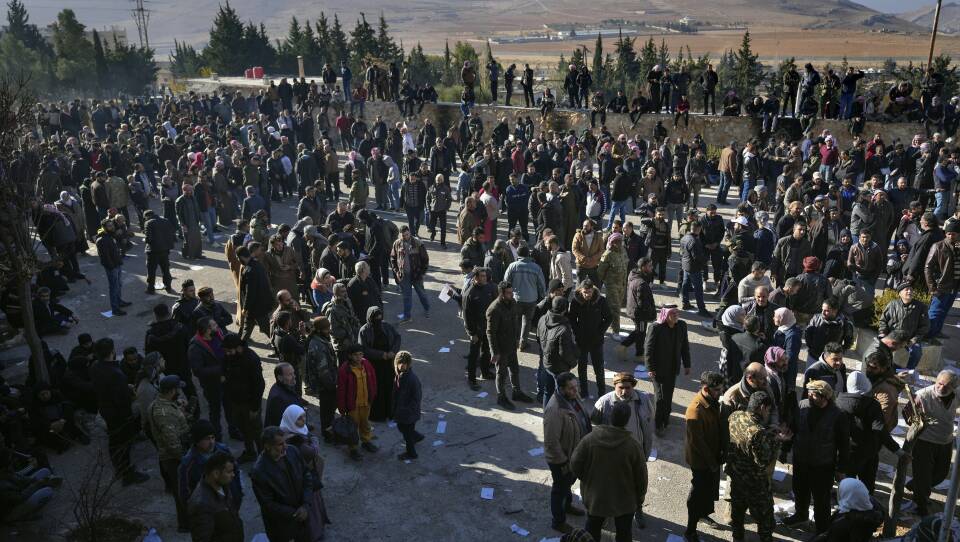Over the weekend, rebel fighters in Syria took over the capital city of Damascus and forced President Bashar al-Assad into exile, ending a 50-year dictatorship by the Assad family.
“I would not have predicted this would have happened with this … just incredible, out-of-the-blue toppling overnight,” Charlie Sennott, editor in chief and founder of The GroundTruth Project, told Boston Public Radio on Monday.
The Assad regime was known for its brutality, Sennott said, where prisons were places of torture and the government carried out attacks on its own civilians. Now, people are celebrating.
“It is a country in chaos and joy and liberation and deep concern because the future feels incredibly uncertain,” Sennott said.
The rebellion was led by Abu Mohammed al-Jolani, leader of the militant group Hayat Tahrir al-Sham. Al-Jolani was originally sent to Syria to establish an al-Qaida affiliate in the country, according the Associated Press. The United States government considers al-Jolani a terrorist and has a $10 million bounty on him.
Al-Jolani cut ties with al-Qaida in 2016 and rebranded his group as Jabhat Fatah al-Sham. Later, it became Hayat Tahrir al-Sham.
“They [Hayat Tahrir al-Sham] have moderated somewhat ... but the moment right now for that group is who are they, what do they represent, what do they want?” Sennott said.
The current iteration of the group is an amalgam of anti-Assad groups, said Martin Smith, a director and producer of the PBS FRONTLINE documentary “The Jihadist.” Smith traveled to Syria to interview al-Jolani in 2021.
At that time, al-Jolani was fighting against Russian bombs and Iranian fighters.
“I thought it was something of a pipe dream that he would ever be able to topple Assad,” Smith said.
Smith said al-Jolani has proven he can effectively lead a militarized attack, but the question of whether he can govern Syria still remains.
Al-Jolani is not a defender of democracy. He has imprisoned people for criticizing him and does not believe in free speech, Smith said. He also participated in attacks where civilians were killed, although he told Smith in 2021 that he no longer did that.
“I think what we’ve seen in the last few days is almost been romanticized because for so long the Assad regime was ... we were sworn enemies. That was a torturous, brutal regime. And so many people are happy that they’ve fallen. But now [al-Jolani has] got to take over the country. And there are a lot of different factions, a lot of different groupings, minorities. And it’s going to be a real challenge,” Smith said.
With uncertainty in Syria, plus conflict in Israel and Ukraine, Sennott said the U.S. must lead with diplomacy to keep pressure on Syria and ensure stability.
“The world is counting on us to try to keep some semblance of order and not let dictatorship, tyranny and autocrats rule,” he said.





